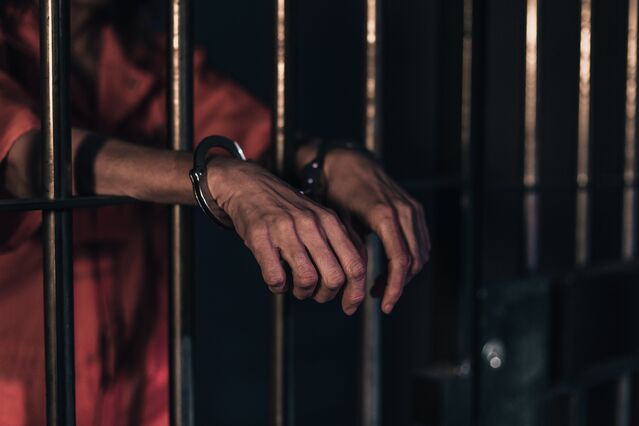Trust
Avoiding Jury Duty Could Be a Thing of the Past
Jury trials are disappearing—but at what cost?
Posted August 16, 2021 Reviewed by Devon Frye
Key points
- The right to a trial by jury is constitutionally protected in the United States.
- Yet jury verdicts are increasingly being replaced by plea convictions.
- Plea bargains can lead to false confessions and may not offer the accused the same rights as jury trials.
“In all criminal prosecutions, the accused shall enjoy the right to a speedy and public trial, by an impartial jury…” —Sixth Amendment, U.S. Constitution
Endangered Trials
Despite what is written in the U.S. Constitution, jury trials are on the verge of extinction. Only 3 percent of federal criminal convictions were decided by a jury verdict; as a result, federal judges regularly go months without a trial. State courts are on a similar trajectory with just 6 percent of cases going to trial. Even the U.S. Supreme Court has acknowledged that “… criminal justice today is, for the most part, a system of pleas, not a system of trials.”
Jury Duty
The reduction in trials has naturally resulted in fewer people being called for jury duty. While many may consider jury duty a cumbersome inconvenience, our founders considered it critical. Thomas Jefferson, Alexander Hamilton, and John Adams are among those that wrote about the trial-by-jury as a necessary ingredient for a free government. Jury service represents a rare opportunity (along with voting) to participate directly in our democracy. And while many people’s trust in governmental institutions is declining, trust in juries remains high. This trust grows after people have served on juries themselves.
Plea Convictions
The decline in jury trials has coincided with an increase in plea convictions. Plea convictions are often the result of a process known as plea bargaining: Prosecutors will offer defendants reduced sentences or charges in exchange for them waiving their right to trial. When this practice was first introduced, one judge characterized it as “… a direct sale of justice”.
Clearly, the justice system has warmed to the practice. Now, plea bargaining is an indispensable tool for the justice system to process cases more efficiently. But at what cost?
False Guilty Pleas
Nearly 20 percent of the wrongful convictions recorded by the National Registry of Exonerations were the result of guilty pleas. These cases represent the tip of a potentially massive iceberg given the difficulty in overturning plea convictions. Defendants who accept plea offers are often required to waive their right to appeal their convictions later.
Further, defendants have fewer protections during the plea process than the trial process. It is unclear, for instance, whether prosecutors are required to share potentially exonerating evidence during plea negotiations (withholding such evidence during a trial would constitute prosecutorial misconduct, a Brady violation). The combination of an abbreviated process (with fewer protections) and deals that limit future avenues for appeal make undoing plea convictions immensely difficult.
Lab studies have also observed significant rates of false guilty pleas using a variety of study methods. These studies consistently demonstrate that guilty individuals are more likely to accept plea offers than innocent individuals, but they also demonstrate that a significant number of innocent individuals are willing to accept plea offers under certain conditions—conditions that can often be replicated in the real world.
The Trial Penalty
Even defendants who refuse to plead guilty are still affected by the plea system. To incentivize pleading guilty, the cost of going to trial has increased dramatically. It now seems clear that criminal defendants are being punished for exercising their constitutional right to a jury trial.
Weldon Angelos was accused of selling marijuana while in possession of a gun on three occasions. These charges carried a mandatory minimum sentence of 55 years. Prosecutors offered Angelos a sentence of 15 years if he pleaded guilty. Upon refusing, he was convicted at trial where a judge reluctantly sentenced him to 55 years in prison. Angelos’ decision to go to trial cost him an additional 40 years. Chris Young was a low-level participant in a drug conspiracy. After rejecting a plea offer for 14 years, he was eventually sentenced to life in prison at the age of 27.
As a result of these excessive trial penalties, taxpayers are paying billions to keep people like Angelos and Young (nonviolent, often first-time offenders) in prison for years, even decades.

Conclusion
Our current system of justice is likely suffering from an overreliance on guilty pleas. Criminal defendants are often required to risk years of imprisonment when exercising their constitutional right to a trial.
The reduction in trials has also limited citizens’ direct participation in our system of law. Our power to judge defendants has largely been transferred to prosecutors (state actors)—a reality that our founding fathers seemingly sought to avoid. The jury trial has been a critical element of Western law for nearly a millennium. We cannot let it disappear.
Interested in reading more? Look for an upcoming piece in Psychology, Crime, and Law entitled, “The disappearing trial: How social scientists can help save the jury from extinction” by Miko M. Wilford and Brian H. Bornstein




